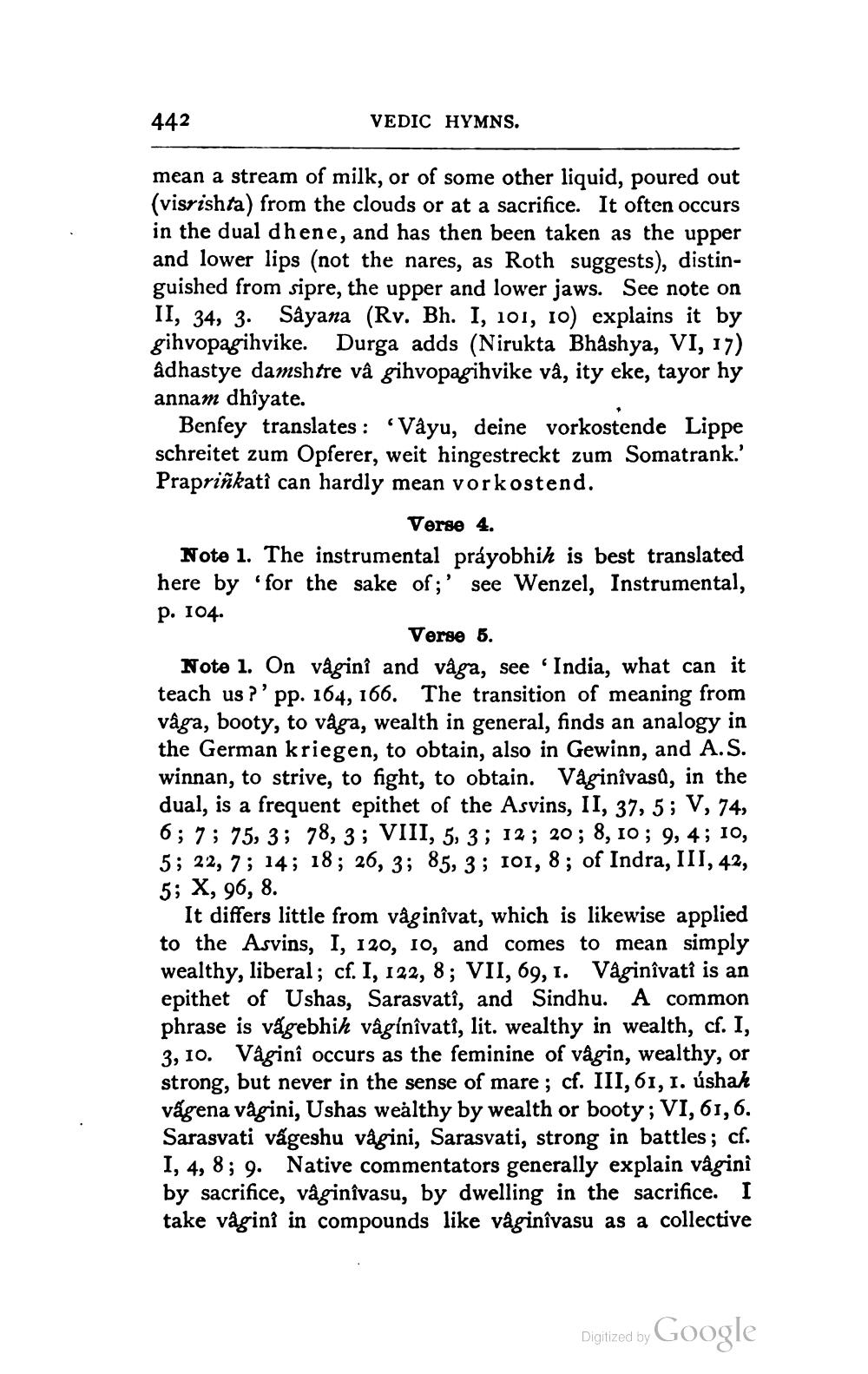________________
442
VEDIC HYMNS.
mean a stream of milk, or of some other liquid, poured out (visrishta) from the clouds or at a sacrifice. It often occurs in the dual dhene, and has then been taken as the upper and lower lips (not the nares, as Roth suggests), distinguished from sipre, the upper and lower jaws. See note on II, 34, 3. Sâyana (Rv. Bh. I, 101, 10) explains it by gihvopagihvike. Durga adds (Nirukta Bhashya, VI, 17) âdhastye damshtre vâ gihvopagihvike vâ, ity eke, tayor hy annam dhîyate.
Benfey translates: 'Vâyu, deine vorkostende Lippe schreitet zum Opferer, weit hingestreckt zum Somatrank.' Prapriîkatî can hardly mean vorkostend.
Verse 4.
Note 1. The instrumental práyobhik is best translated here by 'for the sake of;' see Wenzel, Instrumental, p. 104.
Verse 5.
Note 1. On vâginî and våga, see 'India, what can it teach us?' pp. 164, 166. The transition of meaning from vâga, booty, to våga, wealth in general, finds an analogy in the German kriegen, to obtain, also in Gewinn, and A.S. winnan, to strive, to fight, to obtain. Vâginîvasû, in the dual, is a frequent epithet of the Asvins, II, 37, 5; V, 74, 6; 7; 75, 3; 78, 3; VIII, 5, 3; 12; 20; 8, 10; 9, 4; 10, 5; 22, 7; 14; 18; 26, 3; 85, 3; 101, 8; of Indra, III, 42, 5; X, 96, 8.
It differs little from vâginîvat, which is likewise applied to the Asvins, I, 120, 10, and comes to mean simply wealthy, liberal; cf. I, 122, 8; VII, 69, 1. Vâginîvatî is an epithet of Ushas, Sarasvati, and Sindhu. A common phrase is vagebhih vâgínîvatî, lit. wealthy in wealth, cf. I, 3, 10. Vâginî occurs as the feminine of vâgin, wealthy, or strong, but never in the sense of mare; cf. III, 61, 1. úshak vagena vagini, Ushas wealthy by wealth or booty; VI, 61, 6. Sarasvati vägeshu vâgini, Sarasvati, strong in battles; cf. I, 4, 8; 9. Native commentators generally explain vâgini by sacrifice, vâginîvasu, by dwelling in the sacrifice. I take vaginî in compounds like vâginîvasu as a collective
Digitized by Google




